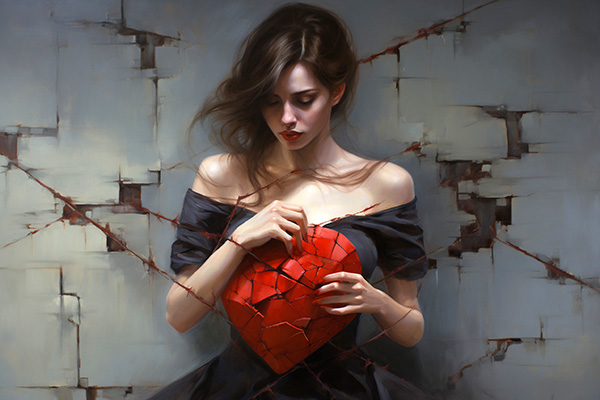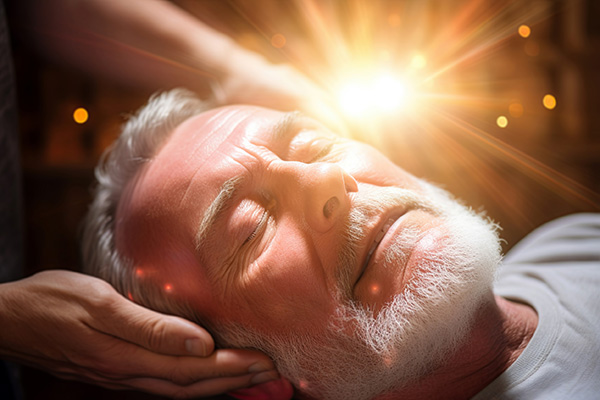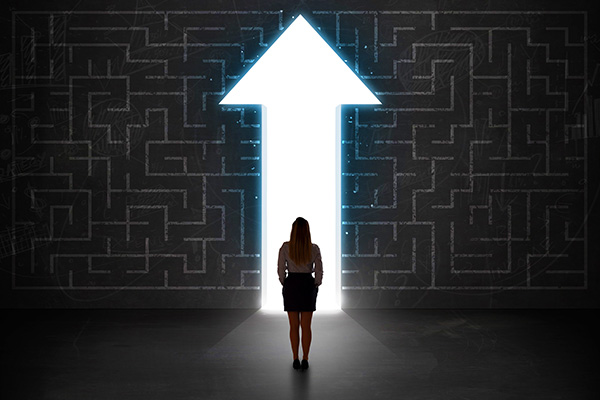pain
The Empath’s Sacred Gift Of Compassion
 Being an empath is more than just having a high sensitivity to the suffering of others. It is also the sacred gift of compassion. Empaths do not only perceive other people’s pain, but we also want to soothe, heal, and uplift them. These twin gifts of discernment and compassionate action are inseparable.
Being an empath is more than just having a high sensitivity to the suffering of others. It is also the sacred gift of compassion. Empaths do not only perceive other people’s pain, but we also want to soothe, heal, and uplift them. These twin gifts of discernment and compassionate action are inseparable.
I have yet to meet an empath who doesn’t feel the calling to alleviate suffering in some way. In a world that so often feels cruel and chaotic, our tender hearts are now needed more than ever.
Compassion, both inward and outward, is a powerful force. It can transform relationships, heal roots of insecurity, and reshape the texture of our inner lives.
In leadership settings, compassionate responses consistently foster trust, deep connection, and lasting loyalty. Harsh reactions, on the other hand, often erect walls and breed resistance.
When someone feels seen, supported, and deeply cared for, their loyalty and dedication follow naturally. This principle applies not only in professional spheres but in every relationship we nurture.
I’ve come to see self-compassion as just as vital as the compassion we extend to others.
Empaths especially can be our own harshest critics. We measure ourselves against external standards and comparisons, often coming up short in our inner dialogue. But offering ourselves a warm, non-judgmental embrace opens new doors: to deeper confidence, heightened clarity, and a grounded sense of worth that doesn’t depend on outperforming someone else.
Moving Forward After A Breakup Or Divorce
 Going through a divorce, or the end of a long relationship, can feel like your world has come crashing down. The dreams you shared, the life you pictured together, and all the emotional energy you invested can suddenly seem lost.
Going through a divorce, or the end of a long relationship, can feel like your world has come crashing down. The dreams you shared, the life you pictured together, and all the emotional energy you invested can suddenly seem lost.
It’s not just about losing a person; it’s also about letting go of a future you once hoped for. It can be difficult to know how to move forward.
However, even in the midst of any ending, there’s an opportunity for a fresh and meaningful new beginning.
Accepting that your relationship has ended is one of the most important steps in the healing process. It’s normal to grieve what could have been, but don’t dwell on the past. The past is a place to learn from, not a place to stay.
True acceptance means letting go of blame, resentment, and regret. This isn’t because the hurt didn’t happen, but because holding on keeps that hurt alive.
Acceptance can be difficult. It means accepting that your life will look different than you expected, and trusting that there’s still joy and beauty ahead. Many spiritual traditions remind us that everything happens for a reason, even if we don’t understand it right away. When we reach acceptance, our heart chakra can open again, releasing stuck emotions and making room for healing. Continue reading
The Miracle Gift Of Spiritual Healing
 I discovered that I had the spiritual gift of healing many years ago when I went to visit my father in the hospital. He was in great pain and something told me to gently touch the knee he had just had surgery on. It was not my intention to accomplish anything, just to comfort him. But then I saw his expression change from agonizing pain to instant relief. That to me was a miracle!
I discovered that I had the spiritual gift of healing many years ago when I went to visit my father in the hospital. He was in great pain and something told me to gently touch the knee he had just had surgery on. It was not my intention to accomplish anything, just to comfort him. But then I saw his expression change from agonizing pain to instant relief. That to me was a miracle!
The next great healing miracle happened when one of my twin daughters was ice skating when she was about 8 years old. I was watching the children enjoy the beautiful winter day when my daughter suddenly slipped and fell. I will never forget her painful scream. I knew immediately that this was really bad! By the time I got to her, others were helping her, but she would not stop screaming. Hearing her in such pain shot through my heart like a bullet.
When I got to her, I immediately saw the bone protruding through her skin. I put my hands over the fracture on her forearm and said, “It’s okay, it’s okay. Immediately she stopped crying and said, “Mommy, it doesn’t hurt anymore. I was stunned and so was everyone else.
I held her arm all the way to the hospital, and when we got there, they made me remove my hands. Again I had to listen to my daughter scream in pain and I felt helpless.
After they immobilized her arm, they let me see her. I touched the cast on her arm and immediately felt that it was not properly applied. Of course, they refused to listen to me at first, but I kept insisting that something was wrong. Finally, they agreed to take a second x-ray, which showed that my daughter’s arm was indeed not in the correct position. So she had to have it done again. One of the nurses asked me how I knew. I never answered.
Your Spirit Guides Will Never Lead You Astray
 “My guides must hate me! Why else would they lead me to things that cause me so much pain?” someone once said during a reading. “And where is my guardian angel when I need him?”
“My guides must hate me! Why else would they lead me to things that cause me so much pain?” someone once said during a reading. “And where is my guardian angel when I need him?”
It was not the first time I’ve heard such sentiments from a distressed client. This kind of disappointment and frustration is not uncommon because it cuts to the heart of spiritual seeking.
It is certainly a valid concern. If angels, guides, and ancestors are meant to guide, support, and protect us, then why do they sometimes lead us to pain, heartache, and even trauma? Do they really have our backs, or are they inflicting suffering upon us for some strange reason?
I confess that there was a time in my own life when I also asked these kinds of questions.
But after years of working as a professional psychic and energy healer, as well as through my own spiritual growth journey, I’ve since come to a comforting conclusion. Our spirit helpers always operate from a place of divine wisdom, unconditional love and compassionate support.
Then why, you may ask, do bad things sometimes happen to good people? It’s simple, really. Any detour from our highest good does not occur because spirit somehow miscalculated, neglected, or misrepresented anything.
When we encounter trouble, it is usually our own doing, or something we co-created with others. Whatever the reason or cause, we alone are always the common denominator.
Below are a few examples of such self-inflicted calamities that I have repeatedly come across in my work, as well as how they differ from actual spirit guidance and divine intervention.
Honoring Yourself In Difficult Family Relationships
 Family dynamics can be tremendously complex for many of us. These relationships are multilayered and deeply ingrained, often playing out across generations.
Family dynamics can be tremendously complex for many of us. These relationships are multilayered and deeply ingrained, often playing out across generations.
Many of my clients seek psychic insight about family matters. After matters of love and romance, and then business or career, family is often the most emotionally charged subject.
In readings, especially with empaths, intuitives, and highly sensitive individuals, I hear countless stories of family pain. Many carry a sense of never belonging, of being misunderstood or scapegoated.
These emotional burdens are often the heaviest that people bear because they are tied to the people they loved first and still love, despite the hurt.
When control or finances are interwoven into the family structure, the complexity of these relationships multiplies.
For many, family represents a love-hate relationship or a deep bond that carries deep wounds. While we cannot choose our family, we do have a say in how we interact with them, how we respond, and whether we continue to engage.
Severing family ties is a significant and often heartbreaking decision that is never taken lightly. By the time someone considers taking this step, the drama or emotional abuse has often been ongoing for decades and is sometimes rooted in a vividly painful childhood.
From Resentment To Radiance: The Power Of Forgiveness
 As a Kundalini yoga instructor, I’ve come to understand forgiveness as much more than just an act of kindness or compassion. It is a sacred healing practice — an essential release and transmutation of toxic energy held within the subtle body.
As a Kundalini yoga instructor, I’ve come to understand forgiveness as much more than just an act of kindness or compassion. It is a sacred healing practice — an essential release and transmutation of toxic energy held within the subtle body.
My work as a Reiki healer and psychic reader has deepened my understanding of this concept. I’ve witnessed firsthand how unresolved emotional pain, bitterness and resentment can create stagnation in our energetic pathways, dimming our vitality and obstructing our intuitive abilities.
In both healing sessions and psychic readings, I’ve seen forgiveness spark remarkable shifts in people’s physical, mental, emotional and spiritual well-being.
In the Kundalini Yoga tradition, forgiveness is not merely a moral ideal. It is a profound energetic cleanse. When we cling to resentment, anger, or betrayal, we create dense energy imprints, or emotional residue, in our aura and chakras, especially around the heart center (Anahata). These blockages disrupt pranic flow, dull intuitive perception, and limit our capacity to experience divine love.
My yoga teacher, Yogi Bhajan, often reminded us that the fastest route to healing and happiness is to forgive completely and limitlessly. He taught that true forgiveness requires releasing the subconscious “recordings” and emotional patterns etched into both hemispheres of the brain — patterns that replay pain and perpetuate karmic loops. “Forgive, release, learn, love, and excel,” he would say. Continue reading
